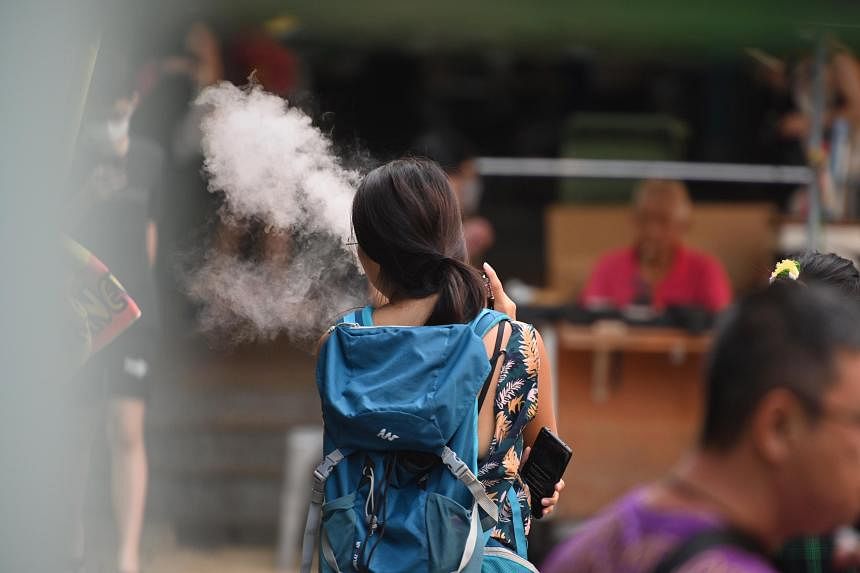Vaping offences rise sharply in schools, enforcement and education being stepped up
First-time offenders caught importing, distributing or selling e-vaporisers can be jailed for up to six months, with a maximum fine of $10,000. Repeat offenders can get a jail term of up to 12 months, along with a fine of up to $20,000.
A study conducted in May by Curtin University in Australia found that social media platform TikTok is rampant with videos promoting vaping. The study, which reviewed 264 videos with 2.5 million views related to e-vaporisers, found that nearly 98 per cent portrayed vaping positively.
HSA said it monitors local online retail sites, social media platforms and messaging apps for suspected peddling of e-vaporisers and their refill cartridges. In 2022, more than 2,600 such postings were removed.
From 2018 to 2022, 860 people were caught selling and smuggling e-vaporisers, and 145 were prosecuted in the same period.
In April, the authorities in Singapore made a record seizure of more than 85,000 e-vaporisers and related products worth more than $2.2 million.
The number of people caught for using and possessing e-cigarettes increased nearly fourfold from 1,266 in 2020 to 4,916 in 2022, according to HSA figures.
Ms Pereira also asked Dr Maliki if there are plans to allocate more resources – technology, teaching tools or manpower – to assist schools in addressing the issue of vaping among the young in Singapore.
Dr Maliki said that schools and IHLs have stepped up preventive education to convey the harmful effects of vaping on one’s health. The MOE imbues messages against smoking and vaping in its curriculum, through subjects like physical education, science, and character and citizenship education.
He added that school staff, like form teachers, are equipped with the necessary skill sets to guide and mentor students on self-control and how to manage addictive behaviour.
While MOE is working with HSA, the Ministry of Health and the Health Promotion Board to strengthen detection, enforcement and education, Dr Maliki said that the cooperation of families and the wider community is needed to reinforce these messages strongly to stem this worrying trend.
This article was originally published on The Straits Times. Its inclusion on this website is solely for education purposes.



No comments
Share your thoughts! Tell us your name and class for a gift (: